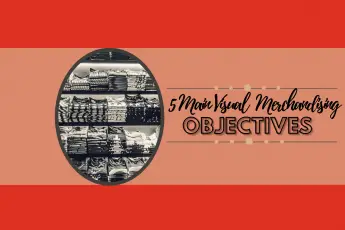Point of Sale
Point of sale (POS) refers to the location and process in which a retail transaction is completed between a merchant and a customer. It is the point in which payment is made in exchange for goods or services.
A POS system is the combination of hardware and software used to facilitate and process these transactions. This can include a cash register, barcode scanner, card reader, touch screen display, and other peripherals. The software component of a POS system can manage inventory, sales, customer data, and generate reports on sales data and trends.
In addition to traditional brick-and-mortar retail establishments, POS systems are also used in e-commerce and online retail settings, enabling customers to make purchases electronically from any location with an internet connection.
Overall, the point of sale is a critical component of any retail operation, and a well-designed POS system can help merchants streamline transactions, manage inventory, and provide a better customer experience.
What does POS stand for?
Point of sale refers to the place where a transaction takes place between a customer and a business, such as a cash register or a checkout counter.
What does a bar POS system stand for?
A bar POS system is a type of point-of-sale system that is designed specifically for use in bars and other drinking establishments. POS stands for “point of sale,” and it refers to the place where a transaction takes place between a customer and a business.
A bar POS system is essentially a combination of hardware and software that enables bartenders and servers to manage and track orders, process payments, and perform other functions related to running a bar. These systems typically include a touch-screen interface, a cash drawer, a card reader, and various other peripherals.
Some of the key features of a bar POS system may include:
- Inventory management: A good POS system will help a bar manager keep track of inventory levels and monitor which items are selling well.
- Order management: A bar POS system can help streamline the ordering process, allowing bartenders and servers to quickly enter orders and send them to the kitchen or bar.
- Reporting: A POS system can generate reports on sales, inventory, and other key metrics, helping bar owners and managers make informed business decisions.
- Payment processing: A bar POS system can process payments from credit cards, debit cards, and other payment methods, making it easy for customers to pay for their drinks and for bartenders to handle transactions quickly and efficiently.
In summary, a bar POS system is a powerful tool for managing a bar or other drinking establishment. By providing features like inventory management, order management, reporting, and payment processing, these systems can help bars operate more efficiently and effectively, and provide a better customer experience.
What does msr stand for with POS system?
MSR stands for Magnetic Stripe Reader, which is a component of a point-of-sale (POS) system that reads the information stored on the magnetic stripe of a credit or debit card. When a card is swiped through the MSR, the data on the stripe is read and transmitted to the POS software for processing.
MSRs are an important component of many POS systems because they allow for fast and efficient payment processing. By swiping a card through the MSR, a customer can quickly and easily pay for their purchase without having to enter their payment information manually. This can help speed up checkout times and improve the overall customer experience.
In addition to credit and debit cards, MSRs can also be used to read other types of magnetic stripe cards, such as gift cards, loyalty cards, and employee ID cards. Some MSR systems can even read the magnetic stripes on checks, allowing for quick and easy check processing.
When selecting a POS system, it’s important to consider the quality and reliability of the MSR component. A high-quality MSR can help prevent errors and ensure that transactions are processed quickly and accurately. Additionally, some POS systems may offer additional features, such as encryption and tokenization, to help protect sensitive cardholder data and reduce the risk of fraud.
Overall, MSR is an essential component of a modern POS system that enables fast, secure, and convenient payment processing for businesses of all sizes.



